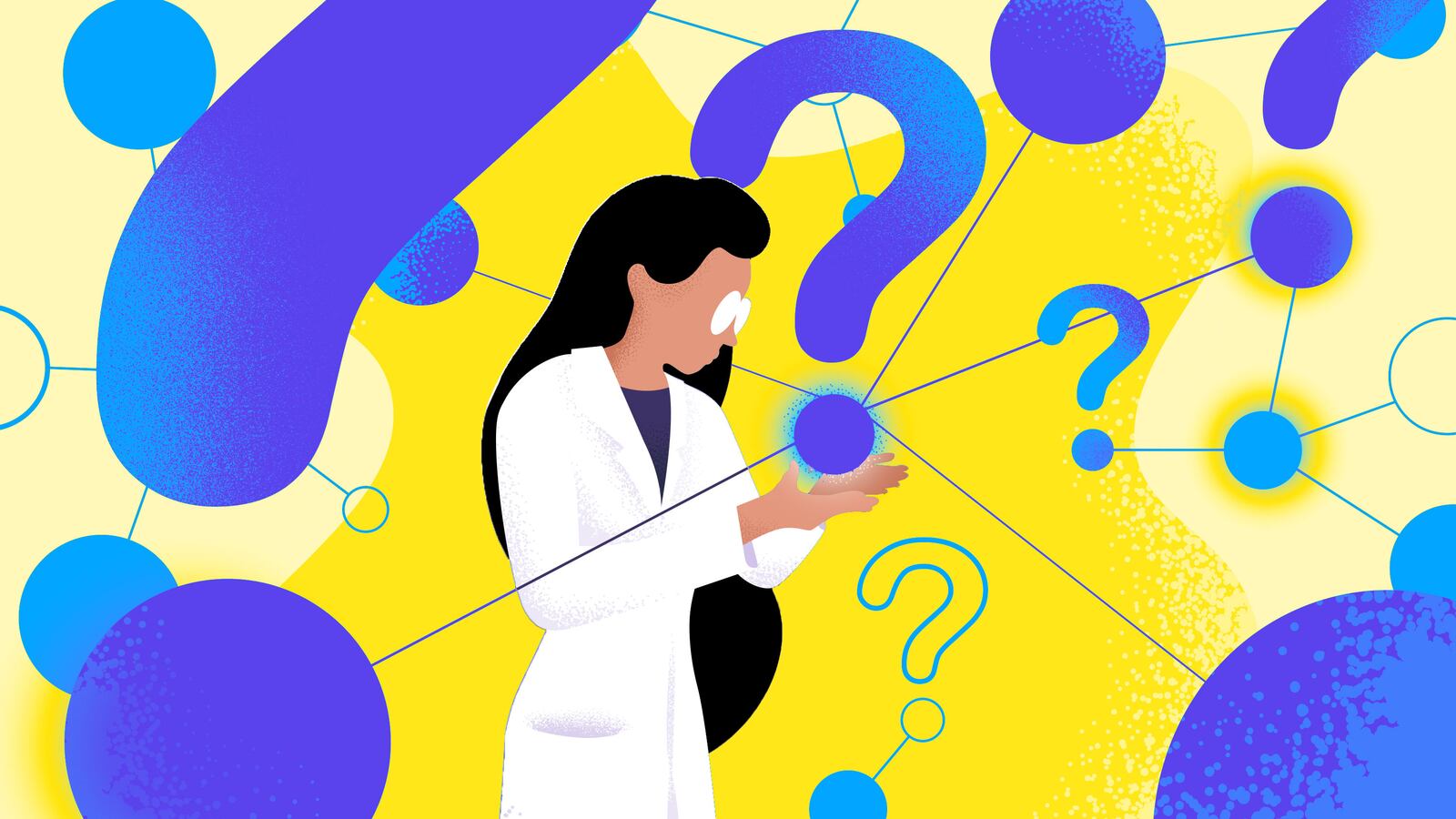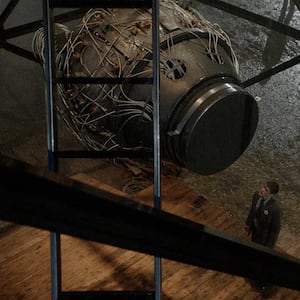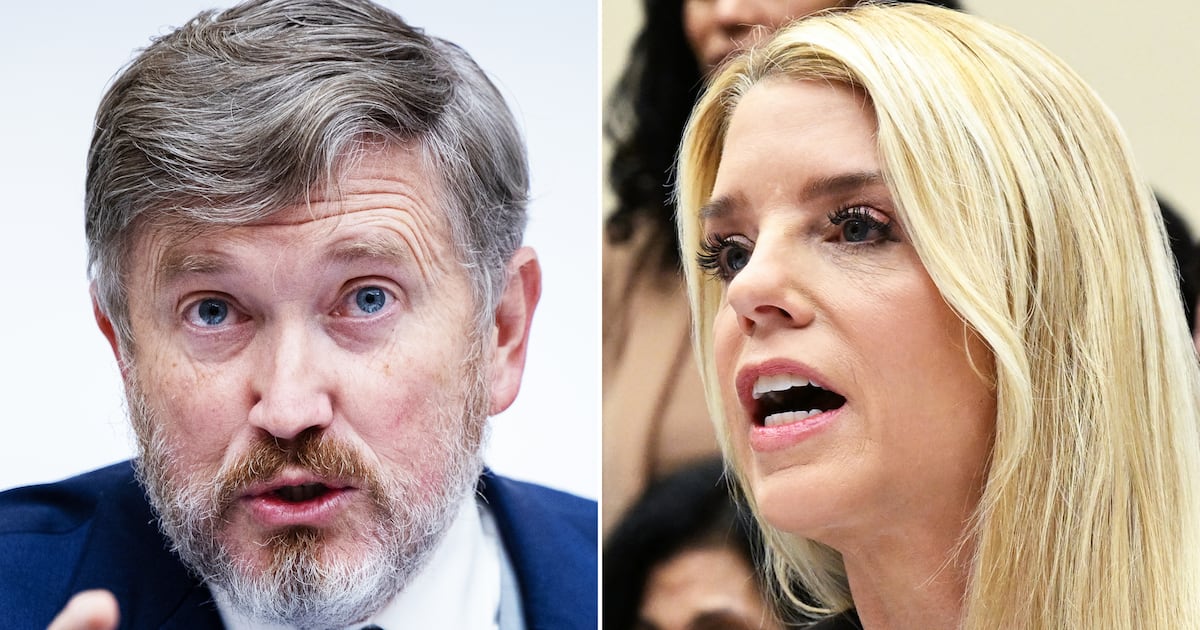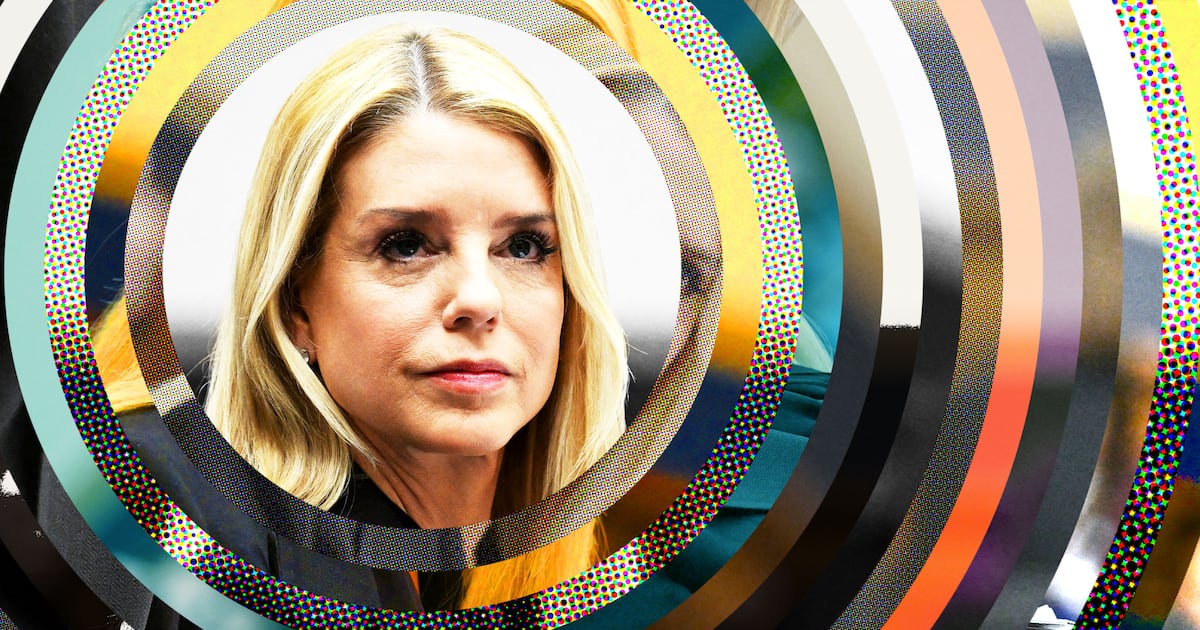For years I’ve thought about the moment J. Robert Oppenheimer, the father of the atomic bomb, stood watching the Trinity Test, the first detonation of a nuclear bomb, and quoted the Bhagavad-Gita saying, “I am become Death, the destroyer of worlds.” This reaction emphasized the terror he felt as he realized he’d created something monstrous. He’d achieved his goal, but he had also lost control and knew that the bomb would forever change the world. This moment, that quote, captures exactly what is most terrifying about science to me—the moment a discovery or invention leaves the lab and enters the real world; the moment the scientist or inventor loses control. It prompts a question that has been haunting me for years: Just because we can, does it mean we should?
I explore the dilemma in my second novel, Atomic Anna, in which my main character, Anna Berkova, builds a time machine. Her primary motivations are to stop the Chernobyl disaster and save her family. She is driven by regret that she pushed everyone she loved away. By building a time machine, she hopes to erase this regret and rewrite a better future, but she’s plagued by the guilt of knowing her time machine, this massive incredible leap in science, is actually the deadliest weapon ever conceived of and built. If she goes back and changes the past, she erases memory, people, entire generations without anyone knowing what she’s done. She could, in effect, kill without anyone having a clue. Who should ever hold that kind of power?
If all Anna wants is to save her family, surely there are other ways to achieve this goal, but I chose the time machine because of our collective fascination with time travel. It’s a trope in novels, comics, movies, short stories, and more. We’re all plagued with guilt and regret, and time travel gives us the chance to erase past mistakes. But just because we can go back and change the past, does it mean we should? Who are we to decide what path is right or wrong?
It’s easy to call science pure and apolitical, to say it’s the pursuit of facts and truth. We fall into that trap all the time. But whose truth is it? And who decides what science to pursue in the first place? Consider Viagra. We’re approaching 25 years of life with the little blue pill. It’s not a stretch to say it exists because men control the pharmaceutical industry; that its very existence, and presence in pop culture, reinforces a longstanding, male-centric and heteronormative view of sex. It was invented to treat high blood pressure and angina (which it didn’t do well) but was found to treat erectile dysfunction (which it did very well). It is lauded as a wonder drug while birth control, considered basic health care for many women, is the center of national protests and lawsuits.
While it may be a scientific fact that Viagra cures erectile dysfunction, the entire system that invented it, produces it, distributes it, and markets it is all political and profit-driven. The fact to focus on is that the people who choose which science to pursue in the first place are the people in power and what they choose aligns with who they are, their world view, and their drive for money.
Viagra is a light-hearted example showing one of the first problems with putting science on a pedestal as innocent fact and truth, but it doesn’t really take us back to the bigger issue: once a scientific breakthrough is released to the world, the team that created it loses control. A company or government funding a project might have intentions that the scientists never even imagined or would support.
The award-winning astrophysicist Professor Chanda Prescod-Weinstein has a lot to say about this in her recent book The Disordered Cosmos. I tracked her down to talk about our tendency to put science on a fact-pedestal because I share her need to draw attention to this mistake, and the need to address what happens when work leaves the lab.
"A really big gap in education right now is we are not equipping students with the tools to think about the ethical questions that might arise in their lives and in their work,” she said when I asked her about science jumping from the lab into the world.
She uses the example of a supernova to explain. “They’re cool,” she said. “But understanding supernova involves understanding nuclear explosions and explosive mechanisms…” If she solves an equation to explain, predict, and/or replicate the nuclear explosions in a supernova it will have applications on earth.
“Who gets to use those equations?” I ask.
She nods and frowns, points out that as an academic, if she solves equations to understand nuclear explosions and publishes them then she is putting her work out into the world and making it freely available. That’s how academics work. Anyone can use her research without her permission—and they can use it for anything.
This is terrifying and why the ethics need to be discussed before the work begins or is put out into the world, she argues. It’s also why we need to talk about science being hailed as progress. Billions of dollars are thrown at ideas and inventions in the name of making the world a better place while, as she points out, all our progress has led to global warming. She asked: Is that really progress or is our relationship to progress catastrophic?
Perhaps Oppenheimer himself would have called progress catastrophic even when intentions are pure. He worked on the atomic bomb because he wanted save America, to prove he was an American, and more. It is hard to find more noble intentions for scientific work. And yet, later in his career, when he described watching the first mushroom cloud rise into the sky, he is famously known for showing his regret, for saying that from that day forward he foresaw a global arms race and Mutually Assured Destruction. The progress he facilitated was and still is catastrophic.
This brings us back to the real question: Just because we can, does it mean we should?
Professor Prescod-Weinstein spends a lot of time thinking about this too, about science being used with unintended consequences. She writes about it being a tool for colonialism, that astronomers like her were once funded to observe an eclipse from Haiti in order to better measure distances so slaves could be moved faster across the Atlantic. Today they’re funded to develop adaptive optics, a technology that makes pictures clearer for astronomers to photograph and map the galaxy but also a tool our government uses to spy on its own citizens and other countries.
What if ethics were a prerequisite for science? This would make sense, especially because desire is a primary motivator for science. We all want something. It’s why we work so hard. Every scientist and adventurer wants something, too. Scientific exploration itself is based in wild dreams, like travel to the moon or Mars, but this sort of wanting has massive implications. One of the biggest symbols of America’s progress in space is the historic moment when Buzz Aldrin and Neil Armstrong planted a flag on the surface of the moon. It may seem like a simple, peaceful gesture but it’s not. As Professor Prescod-Weinstein points out by quoting the Spanish artist Santiago Sierra: “Planting a national flag in a hitherto unvisited place has never been an innocent gesture. This is how colonial processes always begin.”
The science and progress that took those astronauts to the moon also extends to our history of colonization. It’s easy to dismiss this and say no one was on the moon anyway, but there’s an underlying larger issue: How do we share the galaxy? Americans aren’t the only ones who want real estate on the moon, and surely humans aren’t the only life form out there.
What if we go back to the idea that all science should start with ethics? It might sound idealistic, but I’d argue that’s the problem. We humans have big brains. Let’s use them wisely and think hard about how we use power to shape, form and define progress—to decide what science to focus on in the first place. Let’s push our schools, universities, and labs to incorporate ethics into everything they do. It shouldn’t be idealistic, it should be realistic. Imagine a world where every scientist, maybe even every human, starts their day by asking: Just because I can, does it mean I should?







